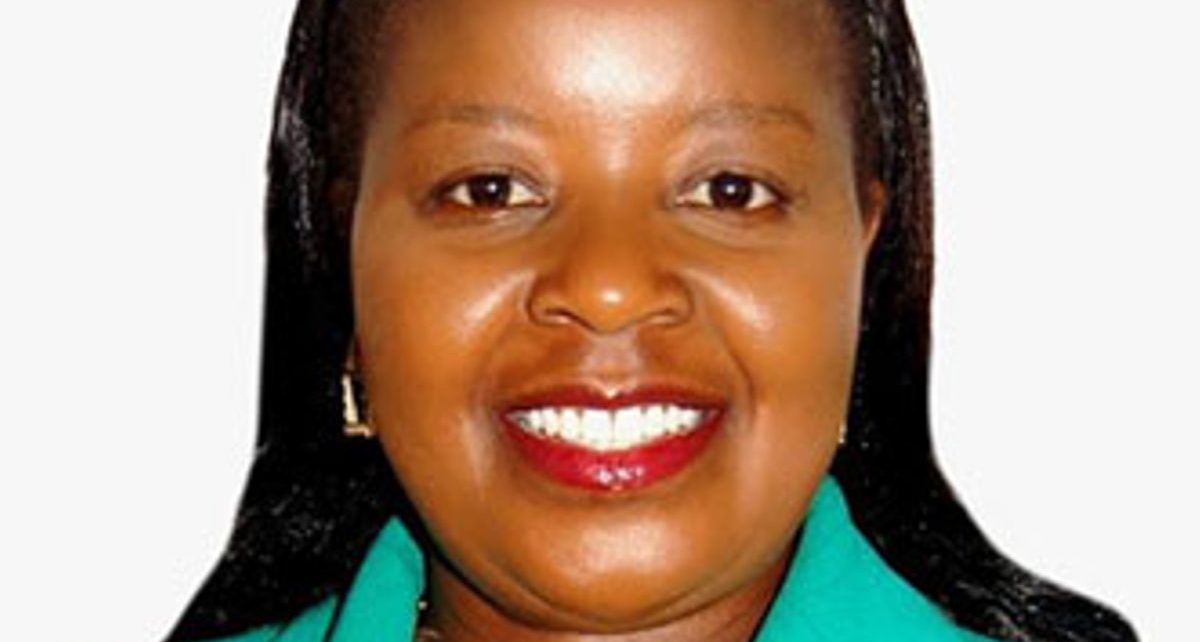James Kamangu demanded Sh3, 000 as ruracio refund from former Starehe MP Bishop Margaret Wanjiru
By Camy Akinyi-Gecaga
Contributing Editor
When former Machakos Senator Johnstone Muthama demanded refund of bride price paid to his estranged wife, Agnes Kavindu, he was forced to hire merciless auctioneers.
Muthama had gone to court first before he was granted powers to use whatever means to recover his bride price just like Mwanzia Nzoka who went to court in 1998 for his refund of two cows, 68 goats and Sh784 for bride price paid 35 years earlier!
Under the law, paying ruracio in Kenya was rendered not mandatory in 2010. But many communities would laugh their heads off at some misguided suitor begging for a hand in marriage empty handed as much as most are shocked when a groom returns demanding bride price refund when the marriage goes south.
But the removal of the three year divorce period by the High Court last year has seen an increase in divorce cases and thus the likelihood of a rise in demands for bride price refunds.
Muthama, a wealthy politician married in 1978 when ruracio was ruracio but divorced Kavindu five years later citing cruelty, according to divorce papers. But those in the know intimate that Kavindu lost her head when Muthama decided to marry a second wife – against her wishes- on his way to five different marriages including to Italian Nina Maria now living in Europe after their divorce.
A Kamba man can also seek refund if a divorced woman retains custody of the children
Muthama and Kavindu got judicial separation in 1983. She was granted custody of their two children whom Muthama took care of. The children included a daughter born in 1996, a year after they reunited and began cohabiting at his Lavington, Runda and Mua hill homes following 12 years of separation.
But recovery of bride price turned comical for Muthama who was forced to hire auctioneers on his father in-law.
The case of Muthama and Kavindu had precedents as the High Court had long ruled in 1974 that under “Kamba customary law, the bride price had to be repaid when there is a divorce” while Judge Roselyne Nambuye ruled in 2002 that under Kamba customary law, bride price refund is in order if a woman remarries.
A Kamba man can also seek refund if a divorced woman retains custody of the children like Kavindu. In some communities, the woman can remarry with the new hubby footing the refund of ruracio.
Divorce under customary law is instituted over among others; denial of conjugal rights, witchcraft, desertion, habitual theft, incest, excessive physical cruelty, adultery and failure to maintain wife and children. But it is not easy forcing bride price refund even among culturally malleable communities like the Kikuyu.
In January 2007, Kenyans were treated to high octane drama pitting James Kamangu Ndimu and former Starehe MP Bishop Margaret Wanjiru with whom he said was his wife and mother of their two sons Steve Ndimu Kariuki and Evans Kariuki. He even produced birth certificates to prove his case, even as Bishop Wanjiru and his sons thumbed their collective noses at the weather beaten potter and cobbler from Gachie, Kiambu County.
At the time, Bishop Wanjiru had mouthed about her imminent marriage to South African preacher Samuel Matjeke that February. Kamangu crawled out of the woodwork, threatened and actually sued stopping the nuptials unless Wanjiru refunded the Sh3, 000 he paid as bride price during their Kikuyu customary marriage in 1979 when muratina was poured as libation to bless their union.
Kamangu interestingly had a campaign poster of Bishop Wanjiru in his house in Gachie
While they separated 11 years later, they never divorced.
Kamangu then married Beatrice Mbaire, but it was the apparent ‘economic apartheid’ between the haughty bishop and the man she termed “jigger infested” that created one of the hottest talking points of 2007, an election year in which Wanjiru was running for the Starehe Parliamentary seat.
Kamangu, who interestingly had a campaign poster of Bishop Wanjiru in his house in Gachie, became a media celebrity and made guest appearances during Mugithi nights before his sudden death in 2008. Kamangu never got his ruracio refund. Bishop Wanjiru’s marital bliss were scattered as Matjeke made a hasty retreat to South Africa.
It later emerged that Kamangu was fished from the blues and paid by political opponents of Bishop Wanjiru who were also eyeing the Starehe seat.
Forcing a refund of ruracio in Kenya has witnessed a fair share of comical asides, from nasty court cases to negotiations degenerating into village brawls.
Bride price is such that by the time a dude lungs in for a refund, the in-laws have already spent assorted cash on repairing the cattle dip, clearing fertilizer debts to sprucing their rural dwellings, upgrading the quality of diary to being guarded by Bosco, the mongrel, at the gate.
Again, in most Kenyan communities, refunding ruracio is hardly factored in when family, friends and not a few enemies gather for mukimo and njahi during bride price negotiations sessions starring the traditional booze, song and dance.
In fact, there could be an increase in ruracio refund demands in line with the increase in the number of divorce cases at the Milimani Courts since High Court Judge Reuben Nyakundi last year ruled that couples don’t have to wait for three years of ‘judicial separation’ before finalizing their divorces, as was previously the case.
Why demand bride price refund in view of the hardships and absurd embarrassments in its recovery?
Consider: By January 2020, the civil registry division on second floor at Milimani received 95 divorce petitions, which rose to 149 cases by February.
But why demand bride price refund in view of the hardships and absurd embarrassments in its recovery?
Well, some Kenyan communities allow it. The Kalenjin have no heart burn refunding bride price, including refunding calves born from cows given as part of bride price while the marriage lasted. Never mind in case some cows paid as bride price died, they were not replaced with living ones.
Among the Luo, refund depends on whether the union bore any children. If a man keeps the children, then in-laws remain with the bride price and vice versa.
But being refunded ayie can take awkward turns when money was paid instead of a heard of dhiang’.
Take the 2018 case of Leonard Omogo, a legal researcher and Elector Akoth Riany, the Nairobi Traffic Court magistrate.
They broke up after having their first baby in 2016 and Omogo demanded eight dhiang’ and Sh350, 000 paid as bride price but Akoth’s father, Martin Riany offered to refund Sh55, 000 only. The calculations went as follows: Sh130, 000 would not be refunded per Luo culture in which in-laws keep any cash gifts. Sh120, 000 was cost of hosting the Omogo brood and clan during negotiations while Sh45, 000 went to feeding them.
Refund negotiations hardly go far and most Kenyans resort to the courts
Both families engaged lawyers through which Omogo’s father, Dr Nicholas Omogo demanded full refund within seven days while Riany asked him to collect Sh55, 000 “from wherever you delivered it” and within 30 days upon whose expiry it stood forfeited. The matter ended in court in 2018.
But among the Kikuyu ruracio refund demands are rare and far between.
Samuel Kamitha, the director general of the Gikuyu and Mumbi Cultural Museum once explained that Kikuyu customary marriages are almost sealed with little room to wriggle out after the mwati and harika (ewe and billy goat) are offered to the wife’s family and njohi ya njurio (liquor for asking hand in marriage) shared among the in-laws.
“Kikuyu traditional marriage is an oath of sorts and divorces were out of the question. Even if she becomes a nuisance or cheats, you can only build a separate house for her and the children, but she will remain your wife,” Kamitha offered.
He added that the ruracio ceremony as a form of oath restrains Kikuyu men from contemplating refunds as messing up with customary oaths have dire consequences like unending illnesses, infant mortalities, financial misfortunes and even death, but in case of extreme cases “there are procedures the Kikuyu Council of Elders follow without necessarily creating a scene.”
Like the Kikuyu, the Kisii deemed divorce as alien and even hardheaded wives were never sent back to their folks, instead, they were apportioned land and a house built for them. Bride price refunds are thus a tough call for a Kisii man-as they are among the Kuria.
Not so with the Bukusu where tradition considered the number of children- who belong to the father-during bride price refunds. Ruracio is paid in livestock and animals are subtracted from the total, for each child born while the marriage lasted.
Some bride price tiffs involve daughters and not even wives
Refund negotiations hardly go far and most Kenyans resort to the courts. Like James Mayaka, a 47 year old secondary school teacher in Kisii who successfully sued for bride price refund after his wife, Everline Kerubo, 45, eloped with another man after five years of marriage in 2014.
Mayaka had paid Sh120, 000 as bride price besides Sh209, 000 on her college fees totaling to Sh329,000. The Kisii court on February 17, 2015 dissolved the marriage and ordered Kerubo to refund half the amount, Sh205,000, plus interest.
Among Muslims, the same case applies when they seek redress at the Kadhi’s court.
In 2016, Salim Mutwiwa Twota sued Rehema Dzuya, his wife of 12 years, for abandoning him for another man. Mombasa Principal Kadhi, Abdulhamid Athman, dissolved the marriage and instructed Rehema to refund bride price comprising furniture worth Sh40,000.
Some bride price tiffs involve daughters and not even wives.
Take the case of Joel Lang’at, a 72-year-old stone mason who was divorcing his wife of 27 years in 2019. To grant the divorce to his wife, Joyce Chemutai 65, Lang’at demanded the bulk of his daughter’s bride price comprising 30 bags of maize, six cows and Sh15, 000.
The 30 bags of maize were to be calculated at the current market price of Sh9,750 as the seed capital for the family kiosk.
The couple married in a civil wedding in 1992 and were blessed with one child- the daughter- but have lived separately for 21 years after Lang’at became cruel and violent.
But Nakuru Senior Resident Magistrate Yvonne Khatambi did not rule in his favour during her ruling on December 6, 2019. She not only dissolved the marriage but denied Lang’at any share of his daughter’s bride price as demanded in his pleadings.

